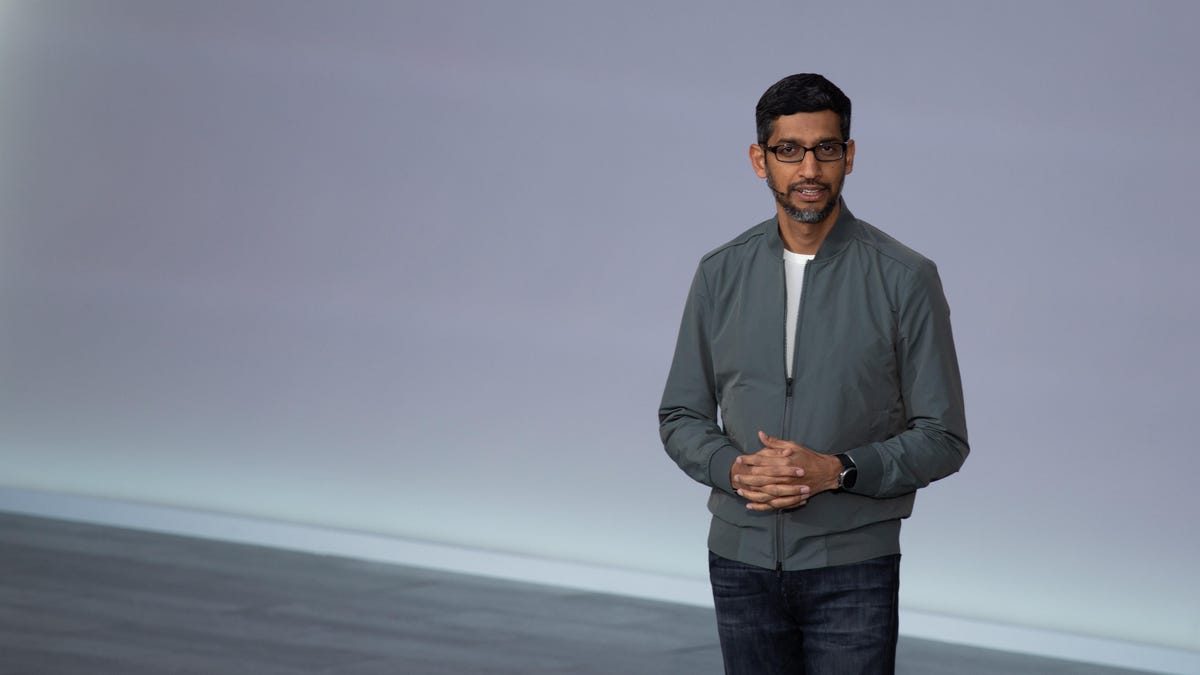Google CEO says 'there's more to do' to prevent incitement of violence
Social media companies have been on the hot seat since the deadly Capitol riot last week.

Google CEO Sundar Pichai
Google CEO Sundar Pichai on Wednesday acknowledged the work to be done by YouTube and other social media platforms to stamp out content that incites violence, in the wake of the insurrection at the US Capitol last week that left five people dead.
"The internet as a whole needs to come to terms with what kind of information can spread," Pichai said at the Reuters Next conference, which was held virtually. "There's more to do from all our sides."
Pichai's remarks come as social media platforms are working to curb misinformation and content that could incite violence. On Tuesday evening, YouTube suspended President Donald Trump's channel for at least one week after taking down content that violated the platform's rules. Twitter has permanently banned Trump, while Facebook indefinitely blocked the president's account.
The CEO said that the company had developed its policies knowing some content could cause real-world harm, but that he didn't anticipate last week's uprising "to that extent."
"The potential for violence was something concerning, there being intelligence leading up to it," Pichai said Wednesday. "It was an area -- we had been taking it seriously."
As social media companies seek to rein in Trump, the president and other critics have called for a repeal of Section 230, a legal protection that doesn't hold tech platforms liable for user-generated content. Republicans have claimed the shield allows tech companies to silence conservative voices.
Pichai on Wednesday defended Section 230. "I've never seen something so foundational that's so misunderstood." He added, "It's what allows us to really support freedom of speech. You also need to be able to take action against harmful content."

